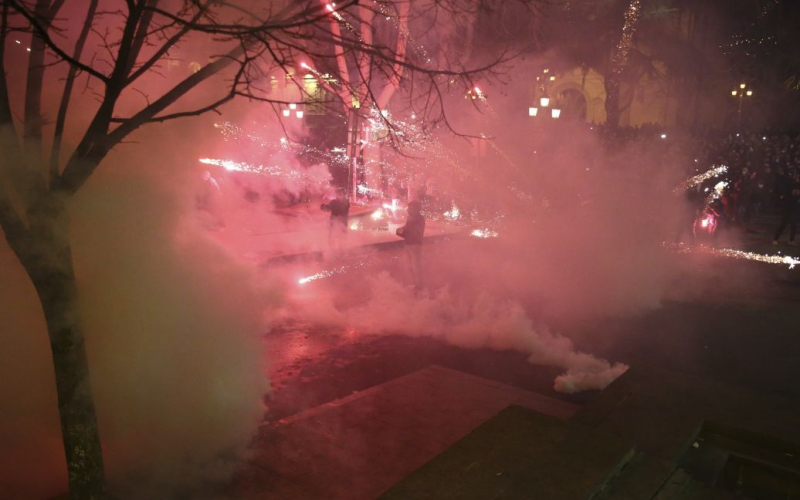
The police dispersed the protesters, but they promise to return.
On the central avenue. Shota Rustaveli in the center of Tbilisi ended with a protest action caused by the adoption of the law on “foreign agents”. The police and special forces left the territory and took away the water cannons.
This was reported by the news agency “Interpressnews”.
“Participants of the rally are leaving the territory adjacent to the parliament. Employees of public utilities have arrived at the scene,” the message says.
The next protest action, according to the protesters, is scheduled for 15.00 on March 8.
The Ministry of Internal Affairs of Georgia reported on 66 detainees at the protests. People were detained on the facts of petty hooliganism and disobedience to the requirements of the police.
The Ministry of Internal Affairs said that the action went beyond the law on freedom of speech, and its participants threw Molotov cocktails, pyrotechnics, threw stones at the building of the Ministry of Internal Affairs, and also set fire to cars belonging to the ministry. 50 police officers were injured.
The ministry says the police “used proportionate force and special means of coercion in order to restore public order and prevent crime.”
It should be reminded that on March 7 the Parliament of Georgia adopted in the first reading the draft law on “foreign agents”. It contradicts the conditions of the country's accession to the EU.
According to the document, the media and public organizations receiving funding from abroad will be granted the status of “foreign agents”. This is practically a copy of the Russian law. After the adoption of the bill, mass protests began in Tbilisi, water cannons, stun grenades and tear gas were used against the protesters.
The EU said that the bill contradicts the conditions for the country's entry into the bloc, the US Embassy in Georgia called the adoption of this document “a black day for Georgian democracy,” and President Salome Zurabishvili said she was vetoing the law.
TSN.ua collected everything that is known about the protests in Georgia.

